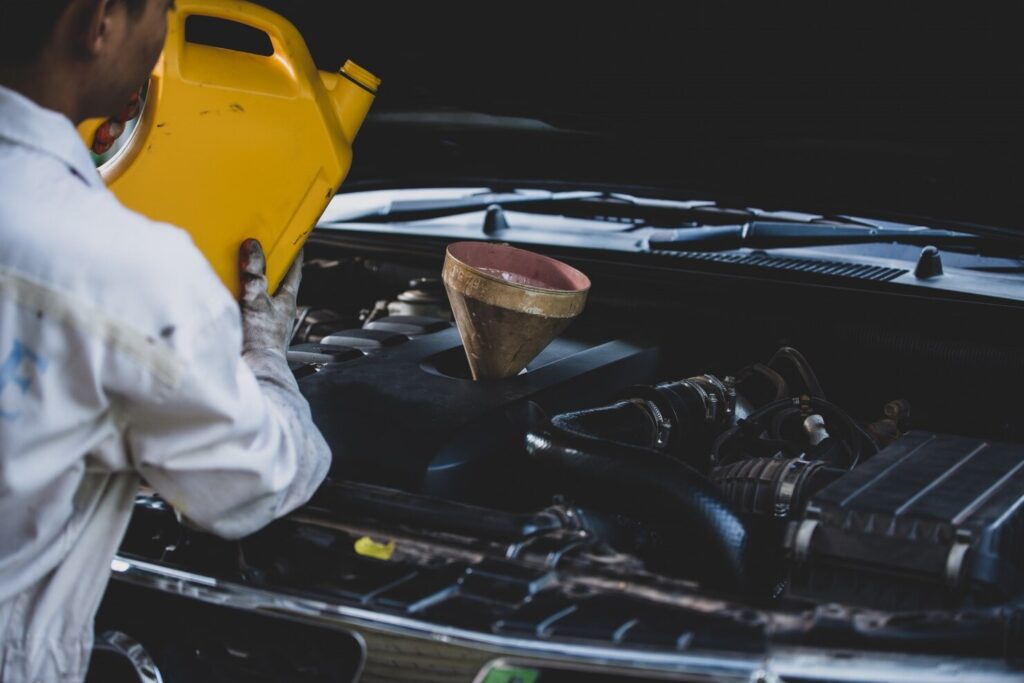Maintaining vehicle dependability while controlling expenses is a perennial problem for fleet operators. Every option has an impact on the bottom line, from fuel selection to route planning. The usage of lubricants is one area that is frequently overlooked yet has a significant impact on dependability and efficiency. While premium lubricants offer sophisticated advantages that go well beyond reducing friction, standard lubricants just give the most basic protection. Fleet managers may increase engine efficiency, decrease breakdowns, increase service intervals, and save overall expenses by utilizing premium lubricants developed for harsh operating conditions.
Better Protection for the Engine
Commercial fleet engines operate under extreme pressure, frequently in challenging conditions, and for extended periods of time. Because of this, they are extremely susceptible to damage if not adequately shielded. Superior base oils and cutting-edge additives are used in premium lubricants, which are carefully designed to improve protection for vital components. Even in the presence of high temperatures or heavy loads, they create a robust protective layer that lessens metal-to-metal contact. By reducing wear on cylinder walls, bearings, and pistons, this delays engine damage and increases longevity.
Increased Fuel Economy
Fuel efficiency is a crucial performance indicator since fuel is one of the biggest costs associated with fleet operations. Because they facilitate smoother operation and lower internal engine friction, premium lubricants dramatically increase fuel economy. Engines use less fuel while producing the same amount of power because they do not have to exert as much effort to overcome resistance. Even though the savings with professional fleet services per car might not seem like much at first, the total savings for a fleet can add up to thousands of dollars every year. This enhancement can have a significant impact on profitability for companies that oversee dozens or even hundreds of cars. Reduced emissions are another benefit of increased fuel efficiency, which helps the company achieve sustainability objectives and improves its standing as an ecologically conscious operator.
Long-Term Oil Change Schedules
The capacity of premium lubricants to prolong the time between oil changes is another significant benefit. Conventional oils degrade quickly and need to be changed more frequently, increasing labor costs, disposal expenses, and downtime. On the other hand, premium lubricants are designed to endure longer running cycles and greater temperatures without deteriorating. This implies that cars can have longer intervals between oil changes without compromising protection or performance. Longer service intervals boost output, save maintenance costs, and lessen the frequency of fleet schedule interruptions. Additionally, they lessen the amount of oil that is utilized and disposed of, which makes operations more ecologically friendly. Less time in the garage and more time on the road are the results of fewer oil changes for busy fleets.
Improved Efficiency in Harsh Circumstances
The conditions in which fleet vehicles operate are frequently far from optimal. Vehicles are continuously challenged by their environment, whether it be dusty construction sites, bitterly cold winters, or intense summer heat. High-quality lubricants are made to function reliably in these harsh environments, retaining their protective qualities and steady viscosity under all circumstances. By avoiding the performance drops that typical lubricants frequently produce in adverse weather, this dependability guarantees that engines and other components continue to operate properly. Having lubricants that can adjust to any situation lowers the chance of failures and maintains vehicle dependability throughout the year for fleets that operate in various geographical locations. One of the most important things fleet managers can do to keep schedules and customer trust is to perform reliably under pressure.
Long-Term Cost Savings
Although premium lubricants are more expensive up front than conventional alternatives, the long-term financial benefits outweigh the cost. Significant savings are a result of longer oil change intervals, better fuel economy, fewer failures, and less engine wear. Furthermore, reducing downtime guarantees that cars continue to provide income rather than idling around in repair facilities. Premium lubricants can result in significant cost savings over a number of years when applied to the entire fleet. They should be regarded as a cost-saving measure that improves fleet performance and dependability while increasing profitability, rather than as an unneeded outlay.
For fleet managers who are dedicated to optimizing performance and profitability, premium lubricants are a must-have due to the financial, operational, and sustainability advantages, even though the initial expenditure may be higher. Premium lubricants are clearly superior in a cutthroat market where dependability and economy are crucial.



